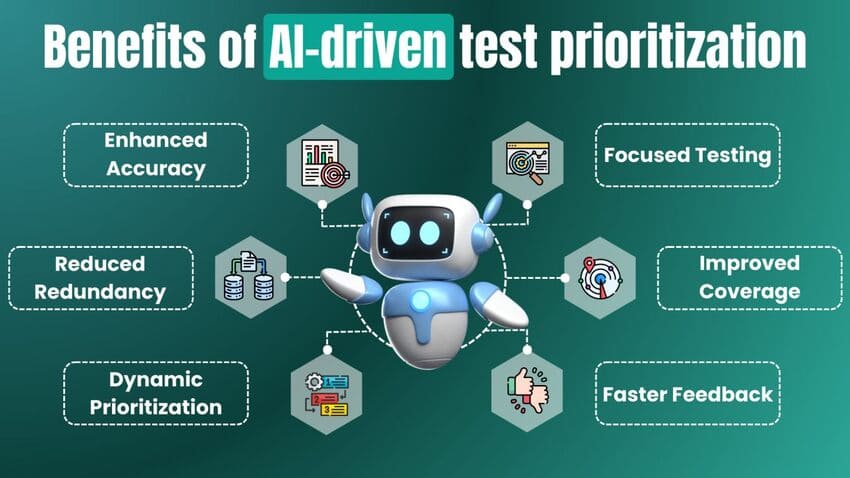
Enhancing Transplant Outcomes with AI-Driven Immunologic Risk Analysis
Title
Enhancing Transplant Outcomes with AI-Driven Immunologic Risk Analysis
Author
1. Cris Tismo,
Student, U.P. College of Medicine and Surgery, Indonesia
2. Chezca punto,
Lecturer, U.P. College of Medicine and Surgery, Indonesia
Abstract
Despite the fact that immunologic rejection offers a considerable danger to long-term graft survival, organ transplantation continues to be a treatment that may save the lives of patients who are going through the latter stages of organ failure. Traditional techniques of immunologic risk assessment, such as matching with human leukocyte antigen (HLA) and testing with panel-reactive antibody (PRA), have limitations when it comes to predicting transplant rejection. A revolution in healthcare has occurred as a result of developments in artificial intelligence (AI) and machine learning (ML), which have made it possible to do predictive analytics, tailor medical treatment, and enhance risk stratification. Artificial intelligence-driven models include data from several omics, deep learning algorithms, and predictive modelling in order to give physicians with accurate and timely insights that can be used for decision-making. Artificial intelligence-driven systems have the potential to revolutionise transplant medicine by refining immunosuppressive medication and increasing patient outcomes. This is despite the fact that there are hurdles such as data bias, interpretability, and regulatory issues.
Keywords
Conclusion
Improved risk stratification, rejection prediction, and optimisation of customised immunosuppressive medication are just a few ways in which AI-driven immunologic risk analysis is changing the face of transplant medicine. Transplant outcomes may be improved by the use of deep learning and machine learning models that include genetic, clinical, and histopathological data. Early rejection diagnosis is made possible using AI-driven predictive analytics, which in turn reduces transplant failure. Data bias, model interpretability, and regulatory impediments are some of the problems that need to be overcome before broad adoption may occur. Clinical decision-making and trust may both be enhanced by explainable AI (XAI). Data quality may be improved using federated learning technologies while patient privacy is preserved. For successful deployment, it is essential that AI developers and transplant experts collaborate. Clinical integration will be accelerated with the standardisation of AI models and regulatory clearances. The goal of future studies should be to make AI models more suitable for practical use. In the long run, artificial intelligence might greatly enhance transplant results and patient survival rates.
Author Contrubution
The study's design, data collection, result analysis, and manuscript preparation were entirely managed by the author.
Funding
No specific funding was provided by any public, commercial, or non-profit sectors for this study.
Conflict of Interest
The authors disclose no conflicts of interest in relation to this work.
Data Sharing Statement
This article does not involve the sharing of data.
Software And Tools Use
The research did not involve the use of any particular software or tools.
Acknowledgements
Thanks to all who provided assistance and expertise for this research and manuscript, and to the peer reviewers for their constructive feedback.
Corresponding Author
Cris Tismo
U.P. College of Medicine and Surgery, Student, Indonesia
Chezca punto
U.P. College of Medicine and Surgery, Lecturer, Indonesia
Copyright
Copyright: ©2026 Corresponding Author. This is an open access article distributed under the terms of the Creative Commons Attribution License , which permits unrestricted use, distribution, and reproduction in any medium, provided the original author and source are credited.
Tismo, Cris, and punto, Chezca. “Enhancing Transplant Outcomes with AI-Driven Immunologic Risk Analysis.” Scientific Research Journal of Medical and Health Science, vol. 3, no. 2, 2025, pp. 6-9, https://isrdo.org/journal/SRJMH/currentissue/enhancing-transplant-outcomes-with-ai-driven-immunologic-risk-analysis
Tismo, C., & punto, C. (2025). Enhancing Transplant Outcomes with AI-Driven Immunologic Risk Analysis. Scientific Research Journal of Medical and Health Science, 3(2), 6-9. https://isrdo.org/journal/SRJMH/currentissue/enhancing-transplant-outcomes-with-ai-driven-immunologic-risk-analysis
Tismo Cris and punto Chezca, Enhancing Transplant Outcomes with AI-Driven Immunologic Risk Analysis, Scientific Research Journal of Medical and Health Science 3, no. 2(2025): 6-9, https://isrdo.org/journal/SRJMH/currentissue/enhancing-transplant-outcomes-with-ai-driven-immunologic-risk-analysis
1475
Total words692
Unique Words64
Sentence20.9375
Avg Sentence Length0.33860367063492
Subjectivity-0.02991691468254
PolarityText Statistics
Viewed / Downloads
Total article views: 97 (including HTML, PDF, and XML)| HTML | XML | Total | |
|---|---|---|---|
| 63 | 19 | 15 | 97 |
Viewed (geographical distribution)
Thereof 97 with geography defined and 0 with unknown origin.